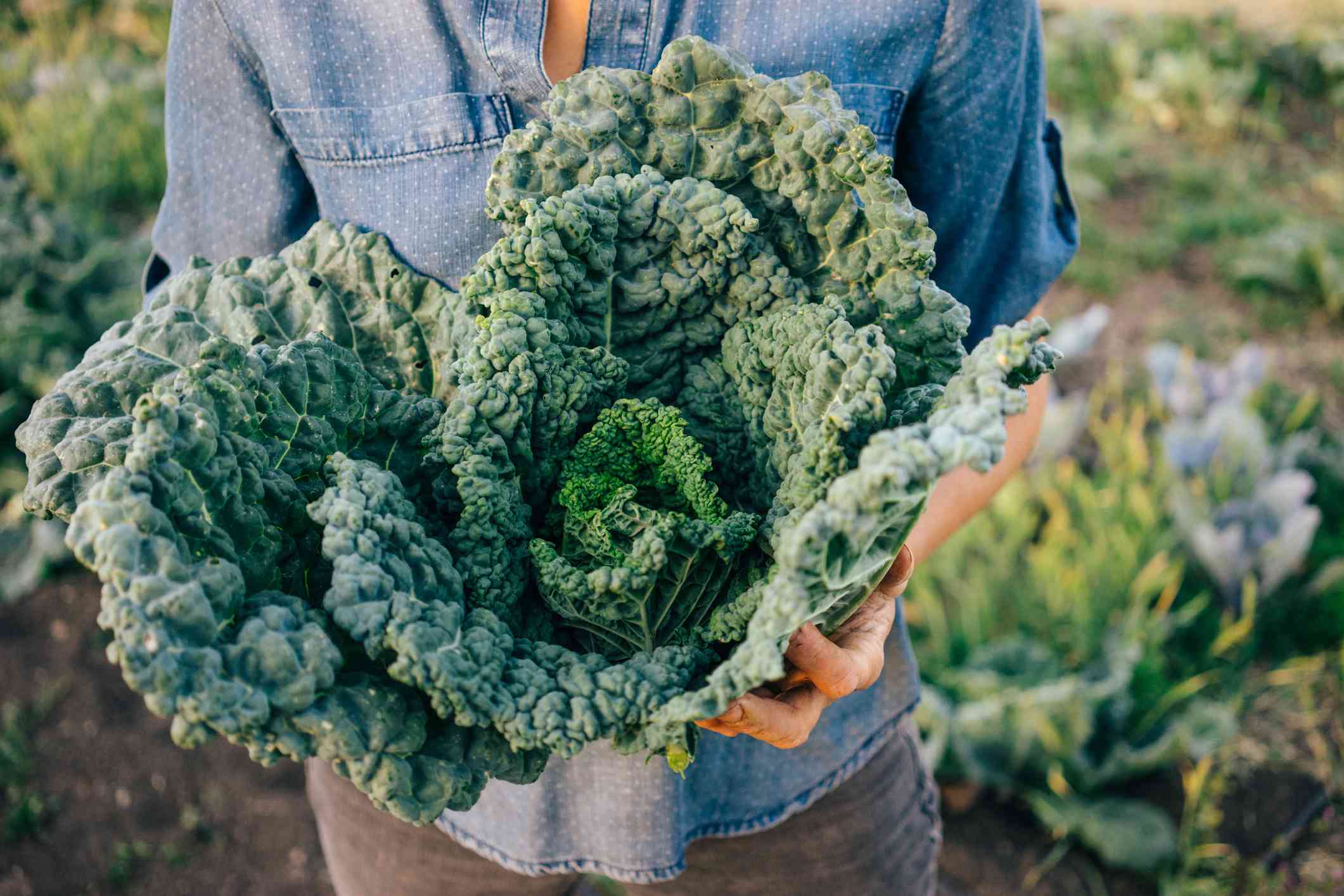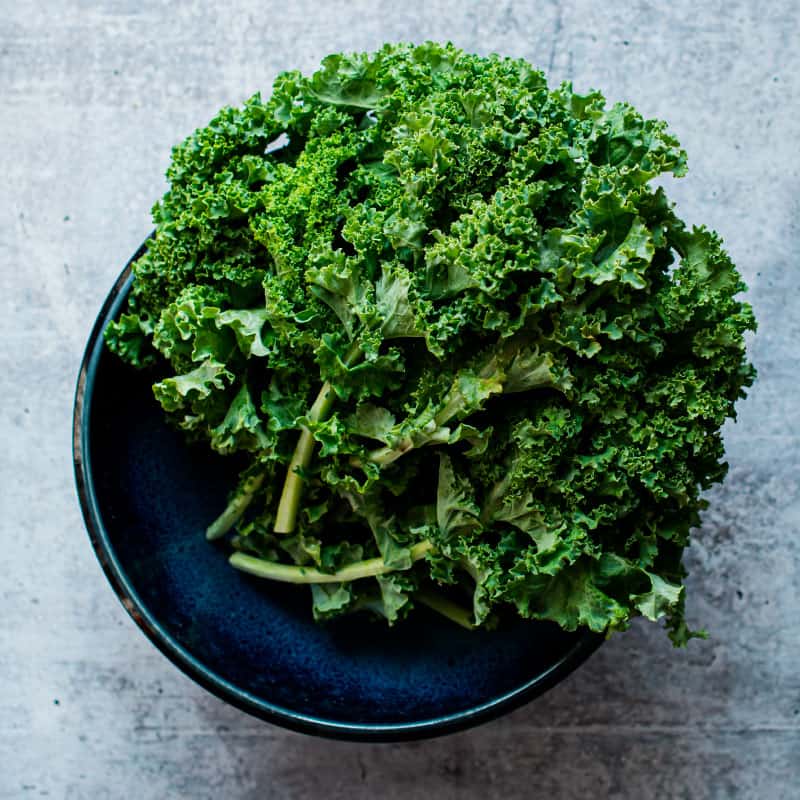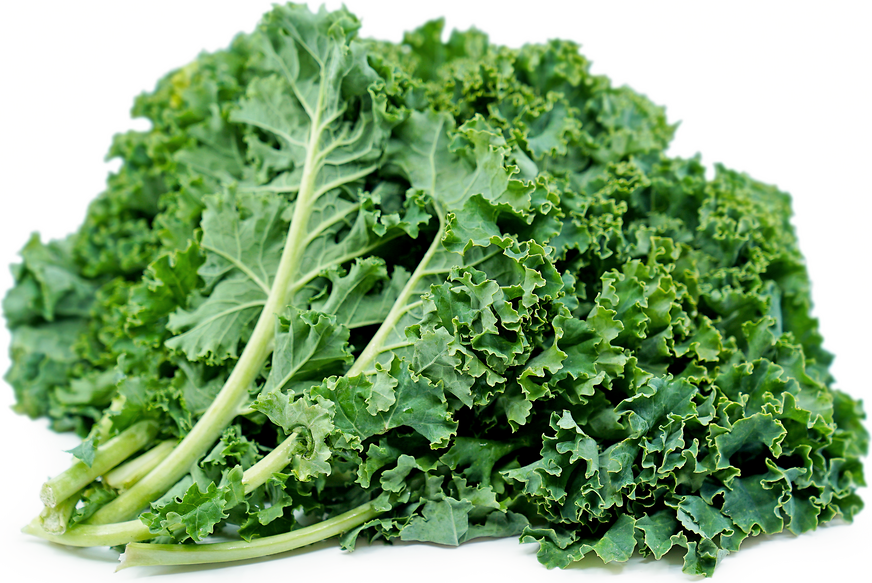
Kale has long been hailed as a "superfood," and for good reason. This leafy green vegetable is packed with vitamins, minerals, and antioxidants, making it an excellent choice for those looking to improve their health. In this article, we'll explain 15 nutritional benefits of kalethat make it a must-have in any diet.
1. Packed With Vitamins A, C, And K
Kale is a rich source of vitamins A, C, and K, three essential nutrients for overall health. Vitamin A plays a crucial role in maintaining healthy vision and skin. It also supports immune function by promoting the production of white blood cells. Sauté vegetables perfectlyto retain their nutrient content, and kale can be a great addition to any dish.
Vitamin C, a powerful antioxidant, helps protect your cells from damage and boosts your immune system. Lastly, vitamin K is vital for proper blood clotting and bone health, making kale an excellent choice for maintaining both strong bones and a healthy cardiovascular system.
2. High In Antioxidants
One of the standout features of kale is its high concentration of antioxidants. These compounds help combat oxidative stress caused by free radicals, which can damage cells and lead to chronic diseases such as cancer and heart disease.
Kale contains flavonoids and carotenoids, two types of antioxidants that have anti-inflammatory properties, helping to reduce inflammation in the body. Adding kale to your diet can help protect your cells from oxidative damage and support long-term health.
3. Supports Healthy Vision
Kale is particularly beneficial for eye health. It's packed with lutein and zeaxanthin, two types of antioxidants found in high concentrations in the retina. These compounds help filter out harmful blue light and reduce the risk of age-related macular degeneration (AMD), a leading cause of vision loss in older adults. With its rich supply of vitamin A and antioxidants, kale plays a vital role in preserving healthy vision.
4. Promotes Healthy Digestion
With its high fiber content, kale is an excellent food for promoting healthy digestion. Fiber aids in the movement of food through your digestive tract, reducing constipation and improving overall bowel regularity.
Additionally, kale’s fiber content can support a healthy gut microbiome by feeding beneficial bacteria that are essential for good digestive health. Regular consumption of kale can keep your digestive system functioning optimally.
5. Supports Heart Health
Kale has heart-healthy benefits due to its ability to lower cholesterol and improve overall cardiovascular health. It contains potassium, which helps regulate blood pressure, and fiber, which aids in reducing LDL cholesterol levels.
Heart-healthy diet tipsoften recommend adding nutrient-dense vegetables like kale to your meals to help support heart function. Consuming kale regularly may help reduce your risk of developing heart disease by improving cholesterol levels, supporting blood vessel health, and lowering blood pressure.
6. High In Calcium
Kale is an excellent plant-based source of calcium, which is essential for maintaining strong bones and teeth. Calcium also plays a role in muscle function, nerve transmission, and hormone regulation. Unlike many leafy greens, kale provides a bioavailable form of calcium, making it easier for your body to absorb.
Including kale in your diet can help prevent calcium deficiencies and support overall bone health, especially for those who do not consume dairy products.
7. Excellent Source Of Magnesium
Magnesium is an essential mineral involved in over 300 biochemical reactions in the body. Kale is a great source of magnesium, which is important for muscle relaxation, energy production, and regulating blood sugar levels.
Magnesium also plays a crucial role in maintaining a healthy heart, as it helps regulate heart rhythm and supports healthy blood pressure. By including kale in your diet, you can ensure your body gets the magnesium it needs for optimal function.
8. Helps In Detoxification
Kale is often touted for its ability to aid in detoxification. This leafy green contains compounds called glucosinolates, which are sulfur-containing compounds that support the body’s natural detoxification processes.
These compounds help the liver detoxify harmful substances and eliminate toxins from the body. Adding kale to your diet can help support your body’s detox processes, promoting overall health and vitality.
9. Low In Calories, High In Nutrients
Kale is an incredibly nutrient-dense food, meaning it provides a high number of vitamins and minerals relative to its calorie content. With only about 33 calories per cupof raw kale, it’s an excellent choice for those looking to lose or maintain weight.
Despite its low-calorie content, kale is packed with fiber, protein, vitamins, and minerals, making it one of the most nutritious vegetables you can eat. It’s a great way to get the most out of your calories while supporting overall health.
10. Supports Healthy Skin
Kale is not only beneficial for internal health but also for your skin. The high levels of vitamin C and beta-carotene in kale contribute to skin health by promoting collagen production and protecting against free radical damage. Leafy greenslike kale are rich in essential vitamins and antioxidants that support healthy skin.
Vitamin C plays a key role in wound healing and the repair of damaged tissues, while beta-carotene, a precursor to vitamin A, supports skin regeneration. Regularly incorporating kale into your diet can help promote youthful, glowing skin.
11. Improves Bone Health
In addition to its calcium content, kale also contains significant amounts of vitamin K, which is crucial for maintaining strong bones. Vitamin K helps with the absorption of calcium and its deposition into bones, reducing the risk of osteoporosis.
Kale’s combination of calcium, magnesium, and vitamin K makes it an ideal food for promoting bone health and preventing fractures as you age.
12. Reduces Inflammation
Chronic inflammation is linked to numerous health conditions, including arthritis, heart disease, and cancer. Kale’s high concentration of omega-3 fatty acidsand antioxidants, such as flavonoids and carotenoids, help reduce inflammation in the body.
Consuming kale regularly may help alleviate symptoms of inflammatory conditions and support overall health by reducing systemic inflammation.
13. Regulates Blood Sugar Levels
Kale has a low glycemic index, meaning it does not cause rapid spikes in blood sugar. Additionally, its high fiber content helps regulate blood sugar levels by slowing the absorption of glucose into the bloodstream.
For individuals with diabetes or those at risk of developing it, kale can be a beneficial addition to the diet, helping to manage blood sugar and reduce the risk of complications.
14. Boosts Immune System Function
Kale is loaded with immune-boosting nutrients, including vitamin C, vitamin A, and zinc. These nutrients work together to enhance the body’s defense mechanisms and protect against illness.
Vitamin C is particularly well-known for its ability to support immune function, while vitamin A helps maintain healthy mucous membranes and skin, which act as barriers against pathogens. Eating kale regularly can strengthen your immune system and help prevent infections.
15. Good For Healthy Hair
The vitamins and minerals in kale contribute to healthy hair growth and shine. Vitamin Apromotes sebum production, which helps keep the scalp moisturized and healthy. Vitamin Chelps with collagen production, which is essential for healthy hair follicles.
Additionally, ironand magnesiumfound in kale improve circulation to the scalp, promoting hair growth. By adding kale to your diet, you can enjoy stronger, shinier, and more vibrant hair.
FAQs
Is Kale Better Cooked Or Raw For Nutrition?
Both cooked and raw kale offer nutritional benefits, but cooking kale can reduce its goitrogenic compounds, which may interfere with thyroid function when consumed in large quantities. Raw kale is higher in vitamin C, which is sensitive to heat.
Can Kale Help With Weight Loss?
Yes, kale is low in calories but high in fiber, making it a great food for weight loss. Its high fiber content helps you feel full longer, reducing overall calorie intake while providing essential nutrients.
Does Kale Have Any Side Effects?
While kale is generally safe for most people, consuming large amounts of kale can lead to digestive issues or interfere with thyroid function due to its goitrogenic compounds. People with thyroid issues should moderate their kale intake and consult with a healthcare provider if necessary.
How Much Kale Should I Eat Per Day For Optimal Health Benefits?
A general recommendation is to aim for about 1 to 2 cups of kale per day. This amount will provide a significant portion of your daily vitamin and mineral needs while supporting overall health.
Can Kale Help Lower Cholesterol?
Yes, kale’s high fiber content and antioxidants can help lower LDL cholesterol levels. The fiber binds to cholesterol in the digestive tract and helps remove it from the body. Adding kale to your diet can be beneficial for heart health.
Final Thoughts
Incorporating kale into your daily diet can offer a multitude of health benefits, from supporting heart health to promoting healthy skin and digestion. This powerhouse vegetable is packed with vitamins, minerals, antioxidants, and fiber that support various bodily functions.

